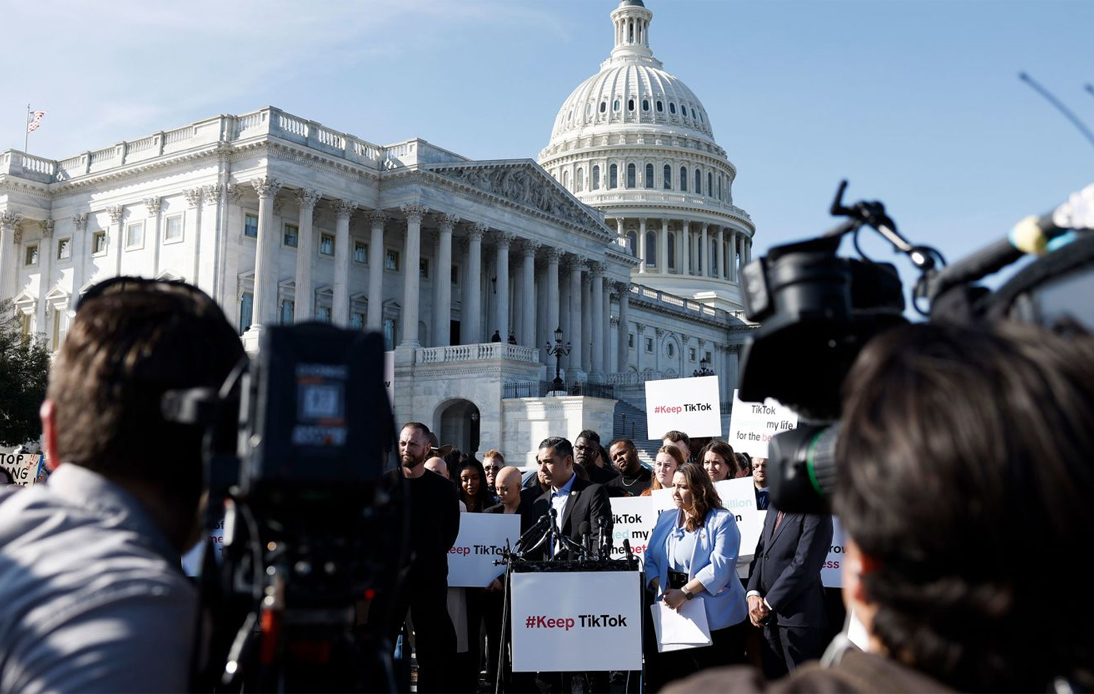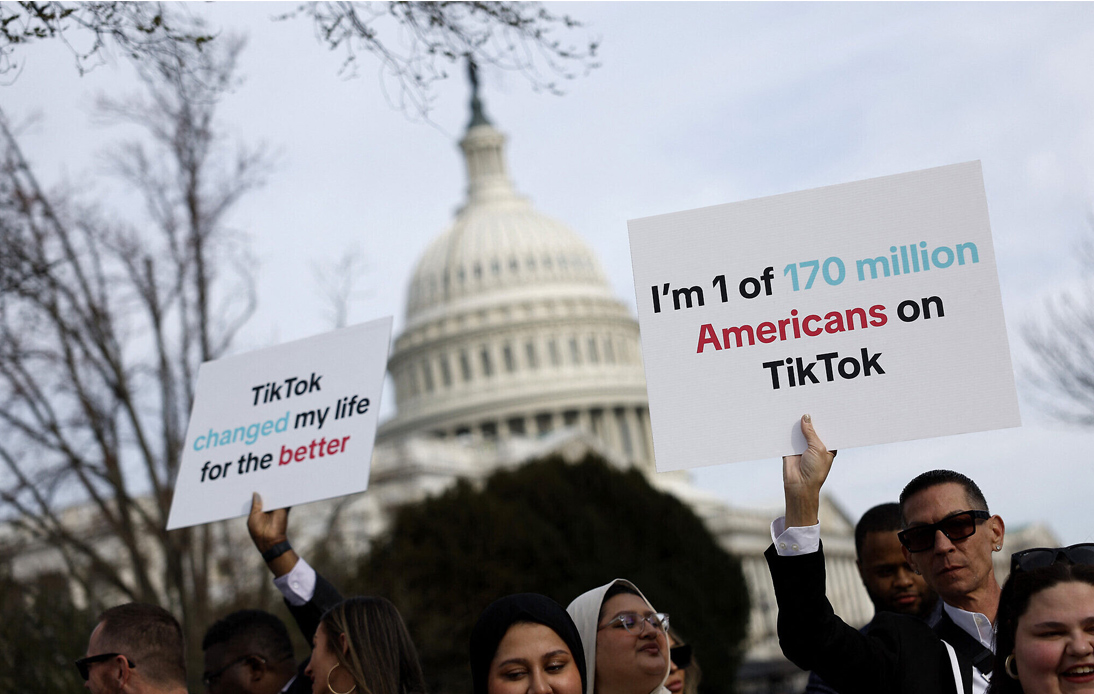
The U.S. House of Representatives decisively approved a bill on Wednesday that requires TikTok’s parent company, ByteDance, to divest its American operations of the short-video platform within six months or face a ban.
This move represents the most significant challenge to the app since the actions taken by the Trump administration.
The approval was secured through a bipartisan vote, with 352 in favor and 65 against. However, the bill’s future in the Senate remains less certain, with some senators preferring alternative methods to manage foreign-owned applications that raise security issues.
Senate Majority Leader Chuck Schumer has stated that the Senate will consider the legislation.
This action is part of ongoing efforts in Washington to address concerns over U.S. national security related to China’s influence in various sectors, including technology in vehicles, AI chips, and equipment at American ports.
“This is a critical national security issue. The Senate must take this up and pass it,” stated Steve Scalise, the second-ranking Republican in the House, on the social media platform X.
The White House press secretary, Karine Jean-Pierre, also expressed the administration’s desire for the Senate to act promptly on this matter.
The debate over TikTok, which is popular among approximately 170 million Americans, has intensified in Washington, with legislators reporting an influx of calls from app users opposing the bill.
TikTok’s CEO, Shou Zi Chew, who is reportedly in Washington, shared in a video that the legislation, if enacted, would result in the app’s ban in the U.S., affecting the financial well-being of creators and small businesses.
He mentioned the company’s intention to legally contest a potential ban. According to the bill, the company has 165 days to initiate a legal challenge following the President’s signature, with President Joe Biden indicating his willingness to sign.
The current political climate in Washington, which leans towards a tougher stance on China, especially in an election year, seems to favor the bill’s passage, despite concerns about its impact on young voters.
Jake Sullivan, the White House national security adviser, asked, “Do we want TikTok, as a platform, to be owned by an American company or owned by China? Do we want the data from TikTok – children’s data, adults’ data – to stay here in America or go to China?”
The Chinese Foreign Ministry has condemned the bill, asserting that “though the U.S. has never found any evidence of TikTok posing a threat to the U.S.’s national security, it has never stopped targeting TikTok.”
Prominent Democrats Question Bill
Several prominent Democrats in the House opposed the bill, including House Democratic Whip Kathleen Clark, Arizona’s Senate hopeful Ruben Gallego, Alexandria Ocasio-Cortez, and the key Democrats overseeing the Judiciary, Ways and Means, Transportation, and Intelligence panels.
Ocasio-Cortez highlighted, “There are serious antitrust and privacy questions here, and any national security concerns should be disclosed to the public prior to a vote.”
The bill was introduced and voted on shortly after being proposed, with minimal public debate, marking progress after legislative discussions had stalled for over a year.
The recent involvement of Biden’s re-election campaign with TikTok had initially given the company hope that legislative action might be deferred.
Ahead of the vote, a group of TikTok users, financially supported by the company for their travel and lodging, gathered outside the Capitol to protest the bill.
Among them was Mona Swain, a 23-year-old who has been on TikTok since her freshman year in college, now a full-time content creator supporting her family with her earnings from the app.
“It’s going to put a lot of people out of work, which is the scariest part,” Swain said of the bill.





















